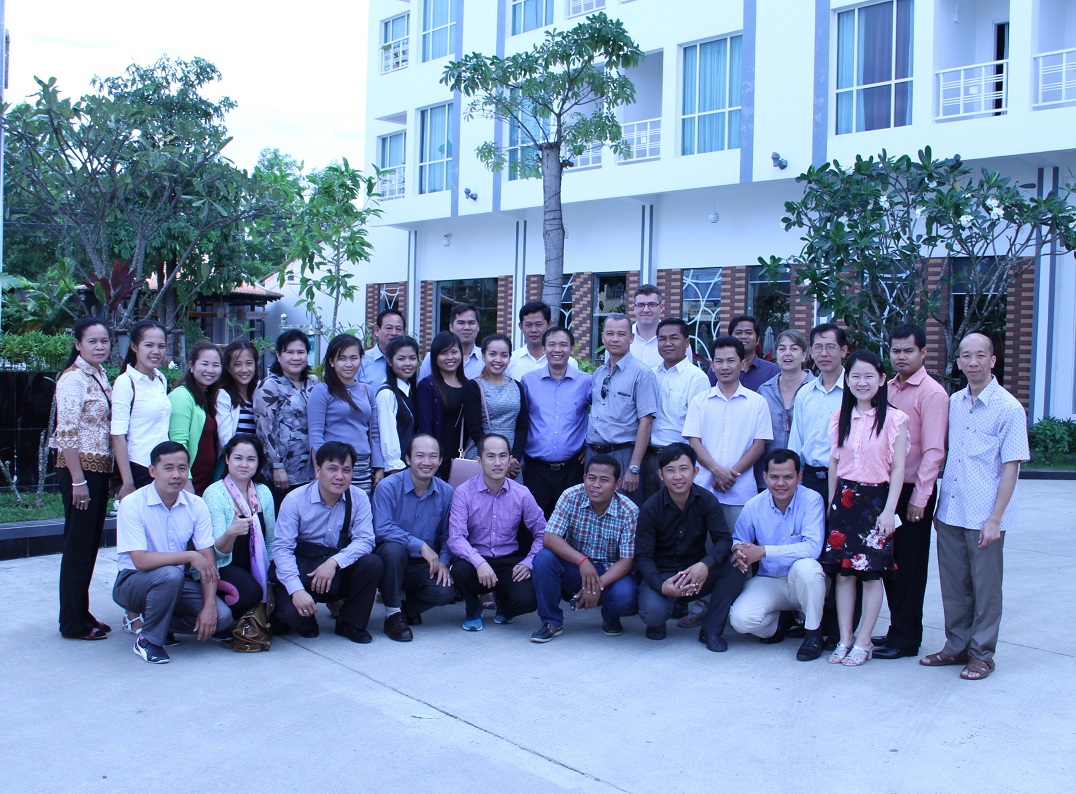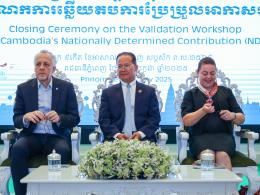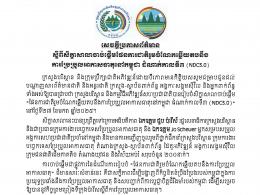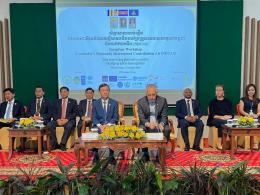 Preah Sihanouk province: To effectively enhance staff capacity and optimize climate change response at national and sub-national level in line with international trend, Department of Climate Change of the General Secretariat of the National Council for Sustainable Development (GSSD) in collaboration with Cambodia Climate Change Alliance phase2 (CCCA2) organize a staff retreat on 1st - 2nd December 2016 to oversee the CCCA’s key achievements in 2016 and develop 2017-2018’s work plan with the participation from the Department and CCCA by checking key challenges, recommendations, as well as discussions on work plan 2017-2018.
Preah Sihanouk province: To effectively enhance staff capacity and optimize climate change response at national and sub-national level in line with international trend, Department of Climate Change of the General Secretariat of the National Council for Sustainable Development (GSSD) in collaboration with Cambodia Climate Change Alliance phase2 (CCCA2) organize a staff retreat on 1st - 2nd December 2016 to oversee the CCCA’s key achievements in 2016 and develop 2017-2018’s work plan with the participation from the Department and CCCA by checking key challenges, recommendations, as well as discussions on work plan 2017-2018.
Key achievements of 2016 made by CCCA supporting to DCC include the piloting climate change mainstreaming commune investment plan at sub-national level, mainstreaming of climate change to national budget plan as well as training to planning and budgeting government staff, development of knowledge management system and quality assurance procedure for knowledge products, as well as the provide grant to 24 ministries/agencies/NGOs. This fruitful results can’t be disconnected from the GSSD and the Ministry of Environment’s support and guidance.
Following proactively group discussion, the work plan for 2017-2018 is reflected and agreed to shift some pending activities to 2016.
Following day of the event, DCC conduct its own staff discussion and consequently outlined for strengthening staff technical capacity, building institutional and legal framework, coordinating the preparation of the Cambodia Climate Change Strategic Plan, resource mobilization, promoting cooperation and aligning programme/project work plans with the DCC work plan.
CCCA is a comprehensive and innovative approach to address climate change in Cambodia, jointly funded by European Union (EU), United Nations Development Programme (UNDP) and Sweden International Development Agency (SIDA). Its 2nd phase from 2014-2019, the strategic activities are Result 1: Climate change mainstreaming by functioning governance and accountability framework for the climate change response at national and sub-national levels; Result 2: Carbon finance by orienting domestic and external finance effectively in support of climate resilience, and low carbon development; and Result 3: Knowledge management by strengthening human and technological capacities to support climate change response.




